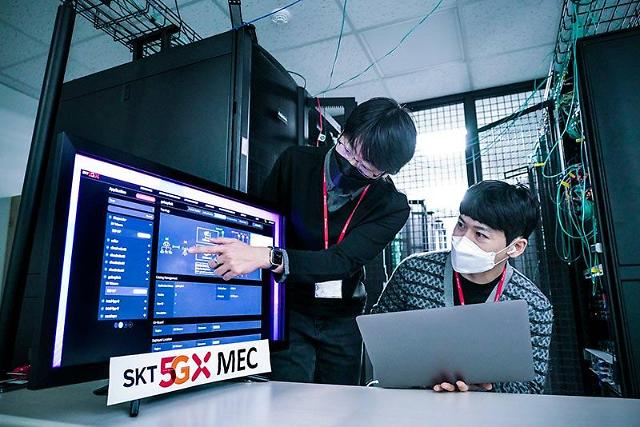
[Yonhap Photo]
Based on 5G networks that ensure the fast transmission of data, South Korea is undergoing a major change in its emergency response system by adopting AI, big data and drones to quickly respond to emergency situations. To enhance the survival of critical patients, South Korea has developed a 5G connected smart emergency medical service platform that will help emergency ward physicians get ready to treat patients before they arrive at hospitals.
A special committee involving government policymakers and civilian experts has endorsed a five-year project to spend some 49 billion won ($43 million) on developing a mobile hospital that can be assembled and dismantled easily, the Ministry of Science and ICT said in a statement on May 14. Mobile edge computing (MEC) and ICT technologies such as 5G and artificial intelligence will be integrated with existing medical devices.
5G MEC technology will assist medical personnel to enable flexible diagnosis and treatment in different situations and expand the scope of medical services, the ministry said, adding the project is aimed at expanding health and medical services to underserved areas through artificial intelligence diagnostic equipment.
The science ministry is in charge of developing a software platform while the Ministry of Trade, Industry and Energy is responsible for developing system integration technologies and a modularized system. The Ministry of Health and Welfare will carry out a demonstration project to secure reliability.
5G MEC delivers low-latency networks to mobile and connected devices while improving data throughput, reliability, power efficiency and security. It is designed to be implemented at cellular base stations or other edge nodes and enables flexible and rapid deployment of new applications and services. By running applications and performing related processing tasks closer to the cellular customer, network congestion is reduced and applications perform better.




